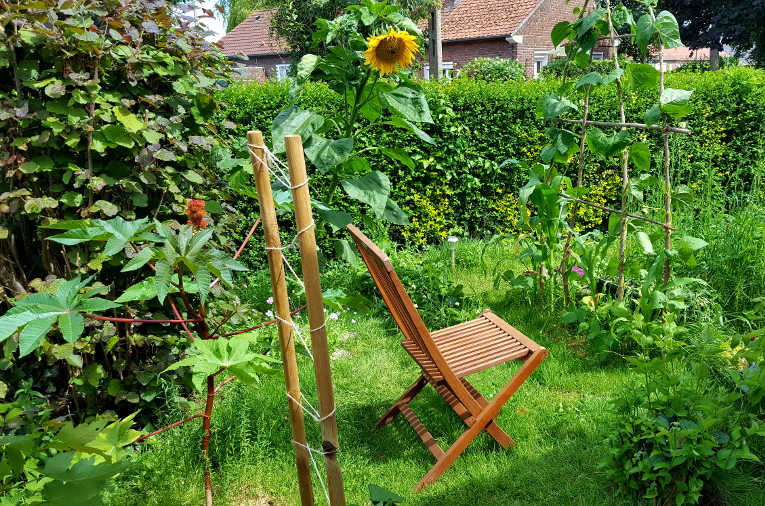Welcome to the fourth blog post in the Enough is Plenty Series from Anne Ryan, hosted by Feasta.
This paragraphs below are taken almost verbatim from Enough is Plenty (with permission from the publisher John Hunt and OBooks). I have updated a couple of terms, but decided to retain the rest, as I strongly identify with this middle-ground and am inspired by the ideas of both citizen-leadership and the middle-ground and want to bring them together.
In the places where citizen-leaders come together, we can promote the idea of the great middle ground. The ‘middle ground’ refers to the masses of people all over the world whose way of living is between over-consumption and poverty; they live without making excessive demands on the earth. It is a materially moderate lifestyle, or culture of permanence, which can reduce stress on the natural environment while also supporting personal and community well-being and which can meet the diverse needs of people throughout the world.
The middle ground is enough in action in many different ways. People living in this middle ground are sustainers. They provide the models we need for sustainable lifestyles: lives rich in rewarding social relations, meaningful, useful work and enjoyable leisure activities, but low in waste, energy use and environmental degradation. This middle ground involves healthy food (largely vegetarian but with some meat and other animal products) and access to clean water. It is a world of rich choices, where people tend to use services instead of buying material products; they use energy and material-intensive goods sparingly; there is a low turnover of consumer goods (they choose durables rather than disposables); and there is little waste to be recycled (in other words, people reduce their consumption and re-use everything they can). There is also substantial personal mobility by convivial means of transport such as bicycles, buses and trains.
This sustaining model of living is also information-intensive and skill-based. It takes technology very seriously, being neither technophilic nor technophobic, but always judging new technology on how it contributes to quality of life. Middle-ground sustainers understand that sometimes it is appropriate to use technology, but that we also need to understand exactly what our needs are, before we turn to technology as a solution.
Cap and Share, Universal Basic Income and structures for Intelligent Agriculture are three frameworks for strengthening the middle ground and creating formal opportunities for people to become part of it. Those of us who already identify with and try to live in the middle ground have to push for the change in the rules that would put those and similarly enabling proposals in place. Ideally, the process is two-way: governments who have the power to make rules and people who have the power to make culture simultaneously take the initiative. In the absence of the ideal, the sustainers of the middle ground have to take the lead. In this way, our wisdom could educate those who are elected to govern. We could participate in creating the cultural value-base of sufficiency that I discussed in the last post.
Many countries currently contain middle-ground sustainers, along with rich over-consumers and poor. The rich are a problem because their high consumption involves them in ecological destruction. Most of us in affluent countries are rich, and we have to make a considerable effort to avoid harming the world around us. The very poor are also a problem because they are often forced to directly degrade the environment. They may trigger soil erosion by cultivating marginal ground that would be best left for trees or grazing. For fuel, they are often forced to use valuable trees, in the absence of any other fuels. They may be forced to migrate, putting pressure on the resources of others.
In the 1990s, Alan Durning calculated that 3.3 million of the world population of 5.5 million belonged to this middle ground, far too many to be dismissed as a middle class (1.1 billion were over-consumers and 1.1 billion were living in poverty). Although large, however, the middle ground is fragile and needs protection and encouragement. Its sheer numbers are not enough to create the changes we need, nor to guarantee its survival. Many people who practice middle-ground values are not consciously part of it. The model of economic growth that dominates globally encourages everybody to aim for the over-consuming rich group. The values of the middle ground are not sufficiently admired or encouraged.
Grass-roots social justice and ecology activists in many affluent countries are helping people, who are poor by the standards of their own country, yet affluent by the standards of many majority countries, to identify with the middle ground. Activists are spreading the skills of growing and cooking, re-using many goods and using bicycles for transport. This way of life is an alternative to depending on supermarkets to supply food. It is healthier, so it results in fewer demands on public health-services. And it is rewarding. Other examples of movements that support the middle ground are transition-towns, simple living, eco-villages, cycling campaigns, Slow Food, Community Supported Agriculture, community gardens and many more. Several good books and online resources, along with help from existing groups, can help anybody get started in the personal and community practice of enough.
A huge diversity of lifestyles appears within the middle ground; it provides many models for moral and ecological ways of living. This diversity is significant: it shows that we do not have to be uniform if we want to adapt our behaviour in such a way that the planet can renew itself. The task of achieving stability and creating adaptive and dynamic systems is not about making us all live in the same way. It is about participation by as many creative individuals as possible, in systems that support life and wellbeing. And the common thread is an appreciation of sufficiency, a sense of the richness of enough, and a love of the earth and its inhabitants.
Featured image: Permaculture garden in northern France. Source





